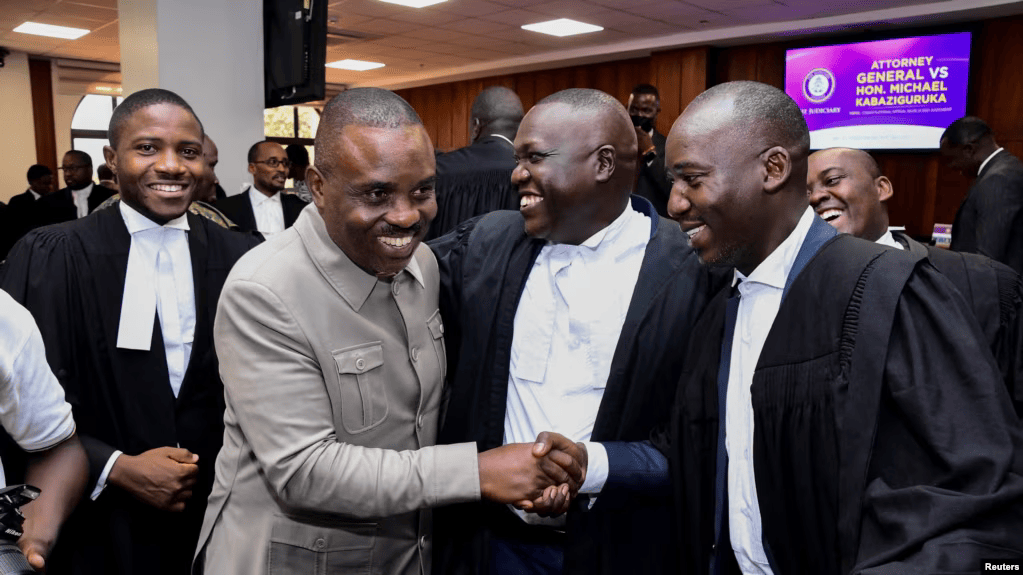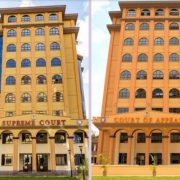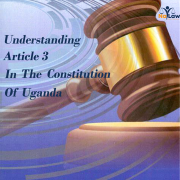The Unlawfulness of Trying Civilians in Military Courts in Uganda: Implications and Reforms.

Recently in the case of Attorney General Vs. Hon. Micheal A. Kabaziguruka, the Supreme Court of Uganda ruled that trying civilians in the General Court Martial (GCM) is unlawful and that the court lacks the necessary jurisdiction. This decision aligns with both Uganda’s Constitution and international human rights standards, which guarantee the right to a fair trial before an independent and impartial tribunal. Military courts, designed to handle offenses by military personnel, often lack the transparency and procedural safeguards necessary for civilian trials. The ruling has sparked significant debate about its implications for the rule of law, constitutionalism and governance in Uganda.
Who Can Be Tried at the GCM?
Essentially, under the Uganda Peoples Defence Forces (UPDF) Act, only individuals who have committed a service offence should be tried in the GCM. According to Section 1 of the UPDF Act, this offence is committed by a person who is subject to military law. Specific civilians associated with the armed forces, such as contractors or those accompanying military units can also be tried in the court.
However, the Supreme Court’s ruling clarifies that civilians, regardless of their association with the military, should be tried in civilian courts to ensure their constitutional rights are upheld.
Reception of the Ruling
The ruling has been met with mixed reactions. Human rights advocates and the international community have applauded the decision as a victory for justice and the rule of law. However, some within the executive and military may resist the ruling, fearing it could limit their authority.
President of Uganda Yoweri Kaguta Museveni called it wrong adding that the country is not governed by the judges. The public, particularly those who have faced military trials, view the decision as a step toward accountability and fairness.
Positive Outcomes and Setbacks
The ruling strengthens constitutionalism by reinforcing the separation of powers and protecting civilians from arbitrary military prosecution. It also enhances Uganda’s international reputation by aligning its justice system with global human rights standards. However, challenges remain. The civilian justice system may struggle with an influx of cases previously handled by military courts, and there is a risk that the military or executive could circumvent the ruling through legal loopholes or alternative mechanisms. The President has instructed the Attorney General to table an amendment to the UPDF Act to consolidate civilian trials within the purview of military courts.
Impact on the Rule of Law and Constitutionalism
The decision underscores the importance of judicial independence and the rule of law. By limiting military overreach, it promotes a clearer distinction between civilian and military jurisdictions, reducing the militarization of court processes for political reasons. It also sets a precedent for future cases, encouraging broader legal and institutional reforms to align Uganda’s laws with constitutional principles.
Impact on Upcoming General Elections
If the ruling is respected and implemented, it could create a more level playing field for political actors, as civilians (including opposition members) would no longer face the threat of military trials. This could reduce political intimidation and foster a freer electoral environment.
The decision may also enhance public trust in the judiciary and the rule of law, which could encourage greater voter participation and confidence in the electoral process.
However, if the government or military disregards the ruling or finds alternative ways to target civilians, it could lead to increased tensions and undermine the credibility of the elections.
Remedies for Aggrieved Parties
While the ruling is not retrospective, the Supreme Court however suspended all previous convictions and sentences. For civilians previously tried in military courts, remedies include constitutional challenges, appeals, compensation claims, and applications for pardons. The Court ruled that previous convictions and sentences shall be subjected to judicial review before competent civilian courts. International human rights bodies may also offer recourse if domestic remedies are exhausted.
Reforms for the Future
To ensure compliance with the ruling and prevent future abuses, several reforms are necessary:
- Legislative Clarity: Amendment of the UPDF Act to explicitly prohibit the trial of civilians in military courts.
- Judicial Oversight: Strengthen civilian courts and establish mechanisms to monitor military tribunals.
- Public Awareness: Educate citizens about their rights and the role of civilian courts.
- International Standards: Align Uganda’s laws with international human rights norms, such as the International Covenant on Civil and Political Rights.
Conclusion
The Supreme Court’s ruling is a landmark decision that reinforces constitutionalism and the rule of law in Uganda. While its implementation may face challenges, the decision provides an opportunity to strengthen the justice system, protect human rights, and promote democratic governance. By adopting necessary reforms, Uganda can ensure that its legal framework upholds the principles of fairness, accountability, and transparency for all citizens.








